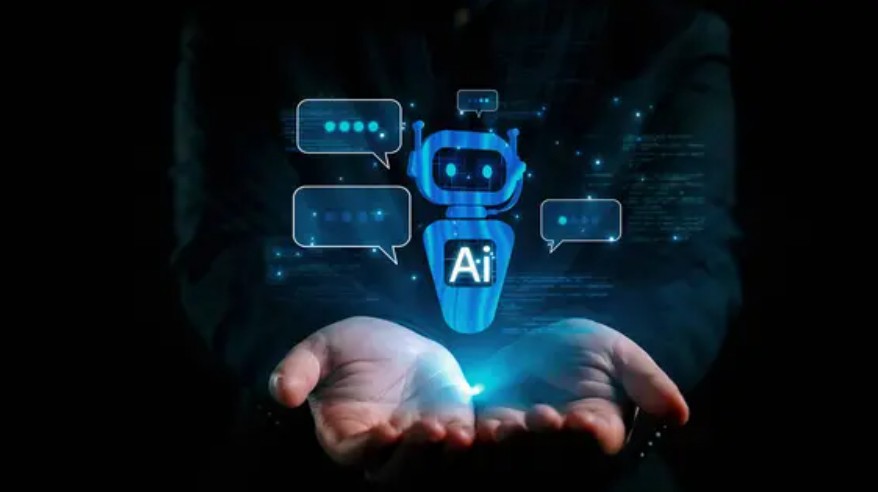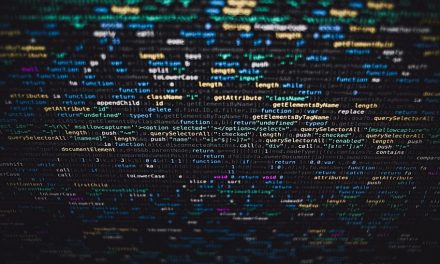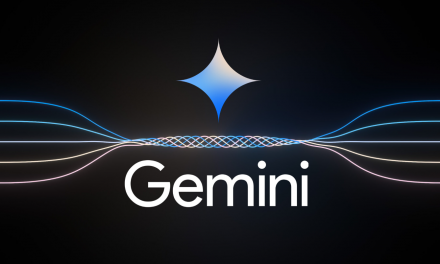When ChatGPT’s Deep Research feature first generated a 15-page analysis on quantum computing’s impact on renewable energy—complete with footnotes and a comparative cost breakdown—I realized we were no longer merely witnessing the maturation of AI. We were observing the quiet birth of a new paradigm, one where artificial intelligence doesn’t just answer questions but begins to weave itself into the fabric of our digital ecosystems. Now, as blockchain technology and Web3 principles infiltrate this space, these AI agents are poised to evolve from task-completing tools into autonomous entities governed by transparency, security, and decentralized logic.
The Convergence of AI and Blockchain: A New Frontier for Automation
The latest generation of AI agents—tools like Proxy 1.0 and Google Gemini—aren’t just automating web searches or calendar management. They’re hinting at a future where machine learning models interact with blockchain protocols to execute tasks with unprecedented accountability. Imagine an AI that books your flight, negotiates a hotel reservation via a smart contract, and logs every decision on an immutable ledger. This isn’t science fiction; it’s the logical next step for a technology stack demanding trust and auditability.
Take Proxy 1.0, which already mimics human browsing behavior to navigate CAPTCHA-riddled websites. Now, layer in a blockchain-based identity verification system. Suddenly, Proxy could authenticate itself across platforms without exposing user data, turning clunky pop-up puzzles into relics of the past. “We’re exploring integrations with decentralized identity protocols like Verifiable Credentials,” shared a Convergence AI developer under condition of anonymity. “The goal is to let Proxy operate not just as a bot, but as a verified digital entity with permissions managed on-chain.”
The Five AI Agents Redefining Autonomy—And Their Hidden Potential
Let’s dissect the current landscape, with an eye toward how blockchain and Web3 could transform these tools from productivity aids into governance-aware systems.
1. ChatGPT’s Deep Research: The Academic Sleuth
ChatGPT’s Deep Research doesn’t just aggregate data—it synthesizes. But what if each citation in its reports carried a blockchain timestamp, proving the source existed unaltered at the time of analysis? This would combat misinformation while letting users trace claims back to origin. Dr. Elena Torres, a data integrity researcher at MIT, notes, “AI-generated content is under scrutiny for hallucinations. Pairing outputs with blockchain-verified source trails could become a gold standard for academic and enterprise use.”
2. Google Gemini’s Spreadsheet Sorcery
Gemini’s ability to generate cited spreadsheets is impressive, but imagine each cell linked to a smart contract. A query about “best ESG-compliant stocks” could trigger real-time data pulls from on-chain corporate sustainability reports, updating portfolios automatically when companies meet predefined ethical benchmarks. “The fusion of AI analysis and real-time blockchain data is inevitable,” says fintech analyst Marco Li. “It turns static reports into living financial instruments.”
3. Proxy 1.0: The Web3 Pioneer
Proxy’s robotic browsing could evolve into a decentralized autonomous agent. Instead of merely booking dinner reservations, it might negotiate with a restaurant’s smart contract system, locking in a table via a micro-payment in cryptocurrency. Failed reservations? The smart contract auto-refunds. CAPTCHA issues? A decentralized identity token stored on-chain could bypass them. “We’re beta-testing integrations with Ethereum-based booking platforms,” revealed a Convergence AI insider. “Proxy isn’t just acting for you—it’s becoming your blockchain proxy.”
4. Microsoft Copilot: The Corporate Governance Whisperer
Copilot’s knack for drafting emails could merge with enterprise blockchain solutions. Envision an AI that not only suggests phrasing but also ensures compliance by cross-referencing internal policies logged on a permissioned blockchain. If a user drafts a contract clause violating new regulations, Copilot could flag it instantly, citing the exact blockchain-stored policy update. “This is where AI meets regulatory technology,” observes legal tech expert Sarah Chen. “Automation isn’t just about efficiency—it’s about embedding governance into every document.”
5. Browser Use: The Silent Deal-Maker
Browser Use’s strength lies in background task execution. Integrate it with decentralized finance (DeFi) protocols, and suddenly it’s sniping limited NFT drops or rebalancing your crypto portfolio based on AI-driven market predictions. Privacy concerns? The agent could operate through a zero-knowledge proof system, proving tasks were completed without revealing sensitive data.
Where Automation Meets Accountability
As these agents gain autonomy, questions erupt. Who’s liable when a blockchain-verified AI books a non-refundable hotel room during a weather crisis? How do we audit AI decisions recorded on immutable ledgers? “Transparency isn’t just about open algorithms,” argues ethicist Dr. Riya Patel. “It’s about creating audit trails that humans can parse, even when AI operates at machine speed.”
Regulatory bodies are scrambling. The EU’s AI Act now requires risk assessments for “high-risk” systems, but blockchain’s borderless nature complicates enforcement. “A DeFi-integrated AI agent might pull data from Singapore, execute a contract under Swiss law, and serve a user in Brazil,” notes GDPR consultant Lars Weber. “Jurisdictional clarity will make or break this space.”
From Tools to Ecosystem Players
The ripple effects are staggering. Travel agencies face obsolescence as AI agents negotiate directly with blockchain-based reservation systems. Investment firms deploy AI traders that execute via smart contracts, reacting to markets at sub-second speeds. Even mundane sectors like retail feel the tremors—why browse Amazon when Browser Use’s AI negotiates a bulk discount with a supplier’s chatbot, sealed on a Solana-based ledger?
Venture capital reflects this shift. PitchBook data shows AI-blockchain startups raising $4.3 billion in 2023, up 217% from 2021. “Investors aren’t betting on chatbots,” says Li. “They’re funding infrastructure—the decentralized networks that’ll let AI agents transact and verify autonomously.”
Toward Self-Governing AI
The future belongs to AI agents that don’t just act but interact—with blockchains, IoT devices, and each other. Picture Proxy 1.0 hiring a Fetch.ai drone to deliver your forgotten passport, paying via a smart contract that releases funds only upon delivery confirmation. Envision ChatGPT’s research agent publishing findings to a decentralized science platform, its data lineage immutably logged.
Yet challenges loom. Energy consumption remains a thorn—training AI models on proof-of-work blockchains could negate carbon savings. Solutions like Google’s DeepMind collaboration with Ethereum’s proof-of-stake transition hint at greener horizons.
In the end, the true disruption lies in trust. As these tools evolve, their ability to prove their actions—through blockchain trails, ethical audits, and regulatory compliance—will determine whether society embraces them as partners or rejects them as opaque automatons. The AI agents of tomorrow won’t just be smart; they’ll need to be virtuous, verifiable, and seamlessly integrated into the decentralized webs we’re only beginning to spin.





